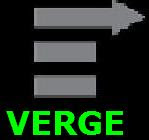" Men give me credit for some genius. All the genius I have lies in this; when I have a subject in hand, I study it profoundly. Day and night it is before me. My mind becomes pervaded with it. Then the effort that I have made is what people are pleased to call the fruit of genius. It is the fruit of labor and thought"- Alexander Hamilton
Cognition is the mental process of converting information from thought to knowing. Our senses are typically used to gather the information which is processed but observation is needed to first draw conclusions, then organize those conclusions into factual statements. The statements are cataloged within the brain and are drawn upon during times of uncertainty, i.e. problem-solving. You may be asking, "what does this have to do with me and my business?" but please, bare with me. It's important that you understand how questions are formed first.
As new information is processed, we conduct a series of rationalizations which categorizes the information into segments. The information that is placed into these segments is categorized as previously known facts or new and unknown observations. At this point questions begin to form as we try make sense of the unknown observation, as well as understand how they correlate to what was previously known. Because questions are the precursors and "guardrails" of innovation, you can see why cognition is an important process to understand.
Following the logic presented here, one must now begin to wonder, "how can increased cognition influence my output of innovative ideas?" That's a good question! You must intentionally expose yourself to new information about your consumers through various forms of ethnography (observations). Questionnaires, focus groups, field tests, surveys, statistical analytics, trend reports, etc. are all great ways to observe your consumer.
I've gotten a little ahead of myself, so let me explain:
Understanding the relationships which exist between your business and your consumer takes constant observation. Information that will be useful to you as you consider innovation is how the consumer uses your product/service/technology; reacts to changes to your product/service/technology; rate of acquisition of your product/service/technology; declines in usage of your product/service/technology (maybe due to competitors or obsolescence), among other things. The information you gather as a result of your observations should be analyzed, but it is the cognitive process you go through to analyze that information that will lead to the question which will fuel your innovations.
The information that you gather is totally obvious at this point. In fact, any of your competitors that engage in primary or secondary market research will have access to the same data.In today's world; especially with the advent of social media and crowdsourcing, reliance on the obvious won't solve your problems or increase sustainable value to the consumer. It will however give your competition the opportunity to one-up you. An alternative use of this information is to use it as a starting block for the discovery the "peripherals" (abstract characteristics of a defined demographic which can be used to create niches within a market i.e. apple iPod).
In summary:
Peripherals are discovered by asking the right questions. Questions lead to innovations. Innovations come from observations. Observations are used to expose relationships, which come as a result of cognition. Cognition is a mental process which leads to the discovery of relationships by converting information, known and unknown, into usable knowledge and understanding

No comments:
Post a Comment